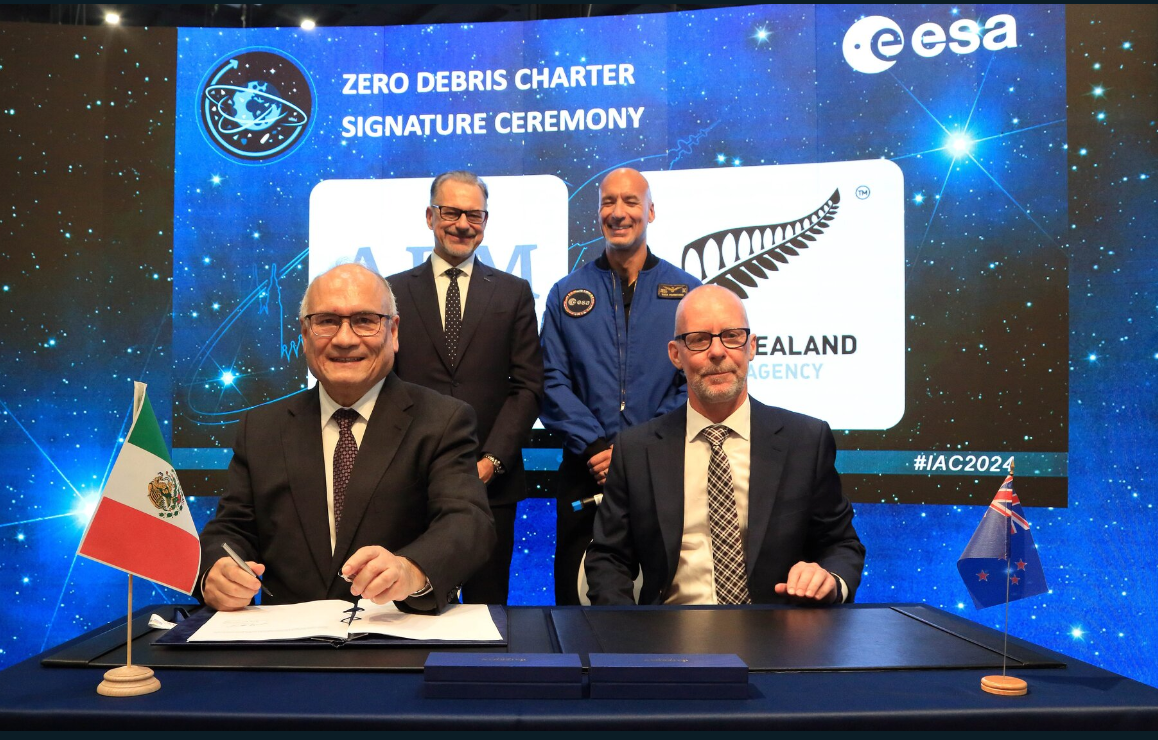The European Space Agency (ESA) has recently signed several contracts aimed at advancing Greece’s Earth observation capabilities, a move that reflects the growing importance of space-based technology for monitoring environmental and geographical changes. This partnership marks a significant step toward improving Earth monitoring in Greece and aligns with the global effort to utilize advanced satellite technology for sustainable development and climate action.

Table of Contents
ToggleWhat Is Earth Observation and Why It Matters ?
Earth observation involves gathering data about Earth’s physical, chemical, and biological systems, primarily using satellite technology. This data is invaluable for monitoring environmental changes, predicting natural disasters, tracking weather patterns, and managing resources. In recent years, Earth observation has become a critical component of addressing climate change, monitoring biodiversity, and supporting sustainable urban planning.
Greece, with its unique geography, is particularly suited to benefit from enhanced Earth observation capabilities. Its islands, mountains, and coastal regions are sensitive to environmental changes such as rising sea levels, forest fires, and temperature variations. Enhanced monitoring can provide Greek authorities with critical data to make informed decisions regarding environmental protection, disaster response, and resource management.
ESA’s Role in Earth Observation
The European Space Agency has been at the forefront of Earth observation, launching numerous satellite missions aimed at collecting detailed data on Earth’s atmosphere, oceans, land, and climate. ESA’s Earth observation missions, like Copernicus, provide open-access satellite data that can be used by scientists, governments, and private companies to address environmental challenges.
ESA’s Copernicus program, one of the world’s most advanced Earth observation initiatives, operates a fleet of Sentinel satellites dedicated to monitoring the environment. By partnering with ESA, Greece gains access to data and technology from the Copernicus program, which can enhance its ability to monitor environmental changes accurately and in real time.
Details of the ESA-Greece Partnership
The ESA-Greece partnership focuses on building and improving infrastructure for Earth observation in Greece. Key components of the partnership include:
Data Sharing and Access: Through the partnership, Greece will have greater access to ESA’s extensive Earth observation data. This includes high-resolution satellite imagery, atmospheric data, and ocean monitoring information. The data-sharing framework will enable Greek institutions and agencies to access critical information for environmental analysis and forecasting.
ESA Partners with Greece to Strengthen Earth Monitoring
Training and Capacity Building: ESA will provide training and technical support to Greek researchers, scientists, and government agencies. This capacity-building initiative will help Greek experts use Earth observation data more effectively and develop new applications tailored to Greece’s unique environmental needs.
Technology and Infrastructure Development: ESA Partners with Greece to Strengthen Earth Monitoring
The partnership includes the development of ground infrastructure to support Earth observation. This will involve setting up receiving stations and data processing centers that allow Greece to process and analyze satellite data locally. Having these capabilities within Greece will enable faster access to real-time data and enhance the country’s ability to respond quickly to environmental changes.
Collaborative Research and Development: ESA and Greece plan to collaborate on research projects focused on climate monitoring, disaster response, and resource management. Joint projects will help Greece address specific challenges such as wildfire prediction, coastal erosion, and biodiversity loss, while also contributing to the global knowledge base on climate change.

Benefits of Enhanced Earth Monitoring for Greece
The improved Earth observation capabilities resulting from this partnership offer numerous benefits to Greece:
Environmental Protection and Conservation: With better data on land use, deforestation, and water resources, Greek authorities can implement more effective conservation strategies. For example, satellite data can help detect illegal logging activities, monitor protected areas, and track endangered species.
Climate Change Adaptation: Greece is vulnerable to the impacts of climate change, including rising sea levels, extreme weather, and desertification. Satellite data can help the country prepare for these changes by identifying at-risk areas, tracking the effects of rising temperatures, and planning for resilient infrastructure.
Disaster Management and Response: Greece is frequently affected by natural disasters such as wildfires, earthquakes, and floods. The ability to monitor these events in real time will significantly improve Greece’s disaster response capabilities. Satellite data can help authorities detect wildfires early, assess earthquake damage, and monitor flood-prone areas to evacuate populations and protect property.
Agricultural and Water Resource Management: Agriculture is a key part of Greece’s economy, and Earth observation data can help farmers optimize crop production and manage water resources. With satellite imagery, farmers can monitor soil health, water availability, and crop conditions, allowing them to make more informed decisions.
How the ESA Partnership Aligns with Greece’s National Goals
The ESA-Greece partnership is aligned with Greece’s commitment to sustainability, environmental protection, and economic growth. In recent years, the Greek government has emphasized the importance of adopting green policies and leveraging technology to address environmental challenges. Through this collaboration with ESA, Greece is investing in advanced technologies that can support its national goals and contribute to the European Union’s larger climate objectives.
Greece’s interest in Earth observation also reflects its commitment to supporting international initiatives on climate action and sustainable development. By strengthening its Earth observation capabilities, Greece can make valuable contributions to global efforts in environmental protection, disaster resilience, and resource management.
Future Prospects for Greece’s Earth Observation Capabilities
The ESA-Greece partnership has the potential to drive future developments in Earth observation technology in Greece. As ESA continues to develop its Earth observation programs and launch new satellite missions, Greece will benefit from access to cutting-edge technology and data. This partnership may also open doors for Greece to participate in other international space and climate research projects, enhancing its position as a regional leader in environmental monitoring and disaster management.
Furthermore, the partnership creates opportunities for the Greek scientific community to engage in high-impact research and development projects related to Earth observation. Greek universities, research institutions, and private sector companies may find new avenues for innovation in areas such as remote sensing, data analytics, and environmental science.

Conclusion
ESA Partners with Greece to Strengthen Earth Monitoring
The ESA-Greece partnership marks a significant milestone in Greece’s journey toward becoming a leader in Earth observation and environmental monitoring. By gaining access to ESA’s data, technology, and expertise, Greece is better equipped to address its environmental challenges and adapt to the impacts of climate change. This collaboration not only strengthens Greece’s disaster response and climate resilience but also aligns with its national goals for sustainable development and international cooperation.
As the partnership between ESA and Greece progresses, the enhanced Earth observation capabilities will offer invaluable insights that can support Greece in building a sustainable and resilient future. This initiative is a testament to the power of international collaboration in tackling global challenges and highlights the role of space technology in building a better world for future generations.

